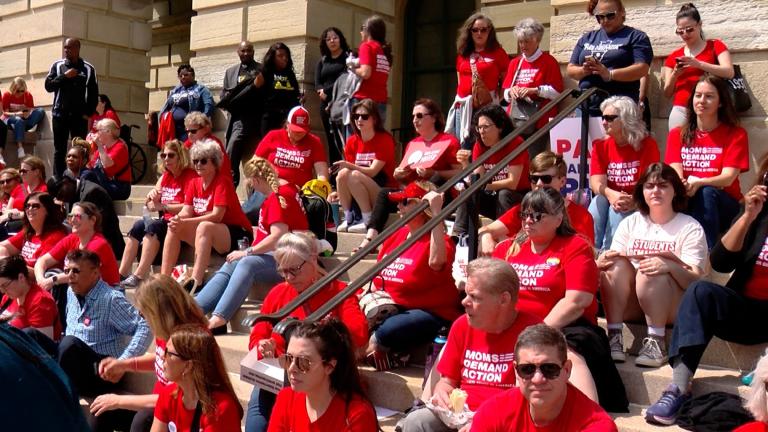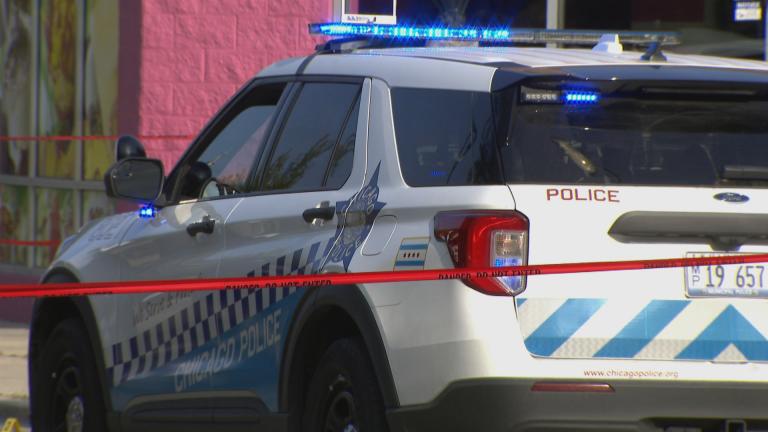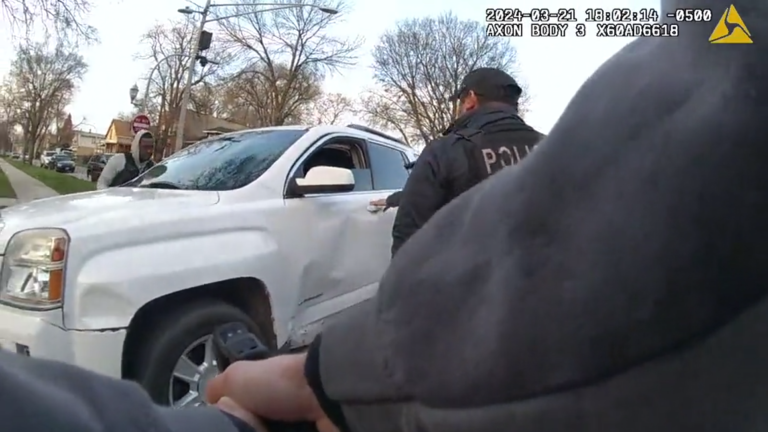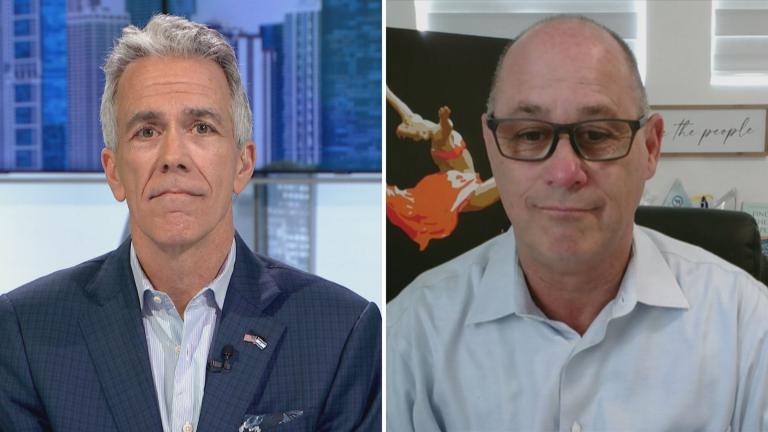State Rep. Bob Morgan was marching in the Fourth of July parade in Highland Park when a 21-year-old resident allegedly used an AR-15-style semi-automatic rifle to open fire, killing seven people.
Morgan says he’d been impacted by gun violence previously and was interested in the pursuit of what he calls common-sense legislation. But the Deerfield Democrat said the Highland Park shooting is among the recent incidents that have brought renewed urgency to the issue.
Last week, Morgan introduced a wide-ranging gun control bill (House Bill 5855) that would prevent the future sale of what the measure describes as “assault weapons,” as well as large-capacity magazines and devices that can switch other firearms into machine-gun style guns.
“I don’t want to wait because every day that we wait is just another mass shooting and that is incredibly real and poignant reminder of the urgency behind this work,” Morgan said. “The urgency of this is something I live with every day.”
Illinois State Rifle Association (ISRA) lobbyist and former Republican state Rep. Ed Sullivan said what Morgan’s trying to do is an overreach, especially in light of the U.S. Supreme Court’s Bruen decision, issued in June, that could narrow state’s abilities to regulate guns.
Gun rights groups are already preparing lawsuits in case the measure passes.
“These are commonly used firearms,” Sullivan said. “Think about the large-capacity magazine ban that is part of this bill. Most of the handguns, semi-automatic handguns, you buy today, come with a magazine capacity that’s greater than 10. So what you’re telling people is: you’re going to take away our property.”
Dan Eldridge owns Maxon’s Shooter’s Supplies, a gun shop and shooting range in Des Plaines. He is also the president of Federal Firearms Licensees of Illinois, an organization representing firearm dealers.
Eldridge says what Morgan’s trying to do is a clear civil rights violation, that would make criminals out of law-abiding Illinois residents.
Those seeking to ban high-capacity magazines argue there’s no need for someone outside the military to have them.
“It’s not a question of ‘what do you need?’ It’s a question of ‘What do you want?’ What do you choose to use, as a law-abiding person, to defend yourself in a justified manner, justified use of deadly force, sport, targets, whatever. It’s irrelevant how many rounds are in the magazine,” Eldridge said.
Morgan’s measure bans the future sale of what it defines as assault-grade guns, and requires anyone who currently owns them to register with the state.
But Eldridge said because magazines don’t have serial numbers, there is no way to know when they were purchased. By his reading of the measure, anyone who currently owns such magazines would become a criminal as soon as it’s signed into law.
The ISRA and firearm dealers’ groups are already prepared to file litigation should Morgan succeed.
“It really highlights the deterioration of the political dialogue, especially within the state,” Eldridge said. “There is no debate to be had on the merits of it. Those positions are pretty well dug in, and both sides have their liturgy and sacraments, and there is just no middle ground here, which is why it ultimately has to wind up in court, which is really sad because it’s a waste of everybody’s time. It’s pitting groups against each other and it’s a huge waste of resources.”
The fight will likely come to a head soon.
Morgan said he hopes to pass the package in early January, when the Illinois General Assembly returns for a brief lame duck session and before exiting lawmakers are replaced by winners of the November election.
As has been the case for years, Democrats will hold super-majorities in the state legislature, but since the Highland Park massacre a ban on so-called assault-grade weapons has been a priority for Gov. J.B. Pritzker.
“There’s no doubt that for many years the idea of passing these common-sense reforms was just antithetical to the political will. We just didn’t have the political courage to do it. That’s changed,” Morgan said on Monday.
He’s hoping for bipartisan support, but said he will not “water this down to something that’s not going to meaningfully reduce gun deaths just to have a couple votes.”
His measure would also establish a statewide strike team to combat guns illegally trafficked across state lines. It would also expand the red flag law by extending to one year instead of six months the length of time long law enforcement can strip guns and gun licenses from someone deemed by a court as dangerous, and increase to 21 the age someone can have a state Firearm Owners Identification (FOID) card
Illinois allows parents and guardians to sponsor those between 18 and 21 a FOID, which allows young adults to purchase guns themselves.
The Highland Park shooting suspect’s father signed off on his son’s gun permit application, despite an earlier incident in which the police were called after the son threatened to kill everyone in his home.
Local police had filed a report with the state police notifying them of the incident, but because there was no FOID application pending at the time, the clear and present danger report was discarded and a gun permit was later issued.
“The whole concept of what (gun control advocates) are trying to do is based on a false premise. You have a kid that was 19 that his parents got him a FOID card, that’s what the law says you can do, but yet this kid should not been able to have a firearm or a FOID card because a report was filed against him for clear and present danger,” Sullivan said. “If they (the Illinois State Police) had done their job correctly, this kid would never have had a FOID card which means he never would have been able to purchase firearms.”
Morgan said youth will still be able to use guns and hunt, as long as they’re supervised by adults who can legally own and use guns.
“This doesn’t change that,” Morgan said. “What we’re saying is an 18- or 19- or 20-year-old shouldn’t be able to buy unlimited ammunition and unlimited firearms on their own, which is what a FOID card allows them to do,” he said.
Members of the military would be exempt.
For Sullivan, the policy battle exposes a cultural divide.
What happened in Highland Park is “horrific, of course” he said but “they (gun control advocates) don’t understand that those of us that have grown up in a culture where firearms and hunting are part of our identity. I don’t know how to bridge that gap.”
An initial hearing on the proposal is scheduled for Dec. 12 in Chicago.
Follow Amanda Vinicky on Twitter: @AmandaVinicky








